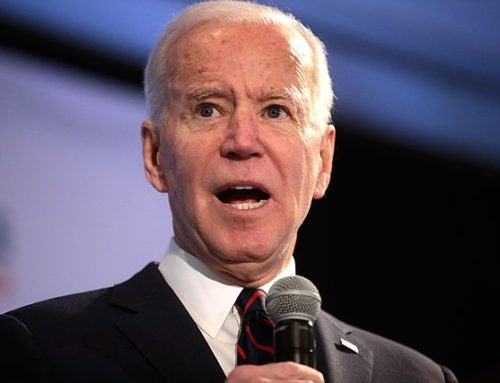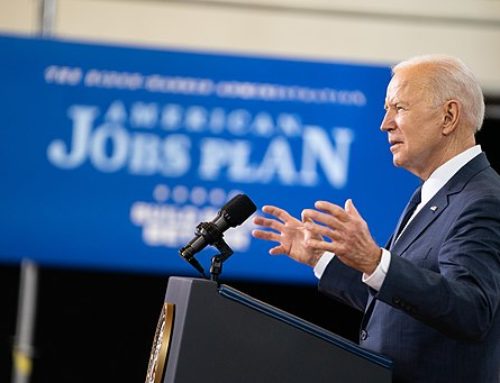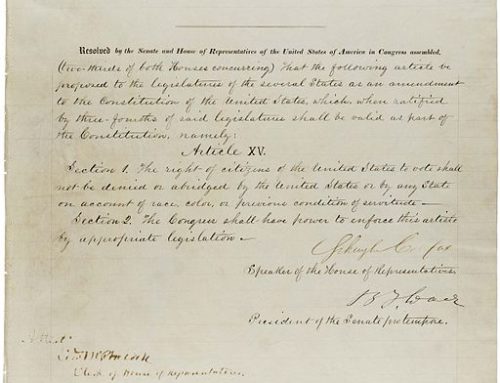I would love for everyone to read quality books that provide in-depth analysis of the factors leading to the Great Recession, the clumsy efforts of key participants to address the crisis, and the ad hoc measures instituted to stop the hemorrhage. Historically, Americans willingness to accept compromise in reaching pragmatic solutions is a source of strength to our democratic institutions. In 2008-2009 we resorted to good, not perfect solutions, to save our economic system.
I decided to read again, Too Big to Fail, after several conversations where people expressed their anger over the bailout of our money center banks. Because the Great Recession was our generation’s Pearl Harbor crisis, I feel that we need to be on guard against such a calamity recurring and recognize that we needed bi-partisan cooperation to take the legislative steps necessary to save our economic system. The abject failure of Republicans to pass a health care bill highlights the folly of our democracy depending upon only one party to address fundamental issues. Stated differently, Democrats needed to swallow some very bitter pills to provide broad scale legislative support to the Bush Administration, including accepting Wall Street executives getting multi-million-dollar bonuses and golden shoot parachutes. Furthermore, Democrats given that our economy was on life support postponed demands for mortgage relief and new financial regulations.
Alternatively, the reluctance of many Republicans to set aside their principles in order to work out compromises has saddled their party with on-going mental calcification. I believe health care for all Americans should rank with military security as a fundamental responsibility of government. That said, we should on a bi-partisan basis work on making Obamacare better!
In brief, the animosity toward the financial industry remains strong, some 9 years after the Financial Crisis (2008-2009). To summarize their bitterness, people say, “Wall Street has fully recovered, but Main Street has not!” Much of the political support for Bernie Sanders came from people who feel that our government policy is tilted toward the rich at the expense of the ordinary man. Although America has enjoyed its longest running economic recovery since March 2009, income inequality and stagnation of middle-income wages rankles much of our electorate.
Where do I stand?
I disagree with Wall Street critics who believe that we can just jettison our current financial system and replace it with ….other! I believe America is blessed by possessing first rate financial institutions as well as commercial enterprises. Japan, China, and Germany exemplify the costs to economic growth when first-rate commercial enterprise are not supported by state-of-the- art financial institutions.
Our continued prosperity depends upon on-going creativity in all aspects of American life. In brief, finance provides the liquidity that commercial enterprises require to function over the short-term, intermediate term, and long term.
Nevertheless, we need to explicitly recognize that human nature does not change and to prevent the excesses that led to the meltdown of our financial sector in 2008, we need strict accountability of the participants, limitations on the leverage employed by the banks, restrictions on bank’s lines of businesses, and civil and criminal penalties for transgressors that employ bogus practices. In the period preceding 2008, financial executives motivated by ego, greed, and ignorance instituted practices that could only have resulted in catastrophe at some point.
Since Biblical times, the public has held a negative perception of moneychangers. Irrespective of their reputation, moneychangers are cats with infinite lives. Despite the Papal prohibition of charging interest rates, the Medici family members (Florence Bankers) became popes. Today we even have ATM machines in houses of worship!
Why do I have a more nuanced view of the financial community given their notorious conduct leading to the Great Recession (2007-2009)?
My most important point is that America needs both a first-rate financial sector as well as commercial sector to remain a first-rate economy. Main Street cannot operation without Wall Street, and vice versa. The lesson of the Great Depression 1929-1935) was that the Federal Reserve and the Federal Government failed to provide liquidity to the financial sector leading to a freezing of commercial activity throughout the land. America has enjoyed since 2009 its longest recovery. In part our immense commercial strength derives from Wall Street’s success.
Secondly, the most notorious conduct by the financial sector was limited primarily to the money center banks and a few major foreign bank institutions. Almost every one of our 6799 banks operated totally within ethical standards. We, therefore, need to limit our ire toward the malefactors and “not their country cousins.”
The question we need to ask is can America return to the high ethical standards exhibited by our banks for most of the period following the Great Depression until the 1980’s. Possibly, the Dodd-Frank Act is overkill, but the scummy behavior by banks following 2008 should make us cautious about being lax. (You might recall the trading disasters of JP Morgan in recent years or Wells Fargo fraudulent activities). Wall Street Firms going public, the Elimination of Glass-Steagall restrictions on investment banking and commercial banking activity, and the introduction of a broad array of new financial instruments all contributed to a breakdown in traditional restraints. Risk Control took a back seat to Greed! In hindsight we should have seen that Al Capone and is ilk would be taking over Wall Street in the 1990’s given the dissolute behavior of S&L officials following the deregulation of the S&L industry in the 1980’s.
Thirdly, the terrible behavior by our Money Center Banks was found in other institutions. Specifically, Government Sponsored Enterprises, FNMA and FHLMC, were complicit in derelict conduct. These organizations hired lobbyists dispensing $ millions to stifle criticism of their behavior.
Let me share with you my personal observations that is never discussed in the press. Both FNMA and FHLMC, who were rated AAA, willingly issued $ billions of debt at BBB rates (1% higher than they could raise money through conventional bond offerings). These institutions to hide their cash shortage issued bonds currently paying 0 interest. Their interest cost was paid at maturity. The effect of this magical financing was their leverage could have exceeded 100x their capital when the government took them over. Their bankruptcy threatened our entire mortgage industry because they guaranteed more than half of all mortgages.
Another delinquent institution was AIG, the world’s largest insurance company. AIG, to hide their reckless behavior, bet $ billions out of their London office. In brief, almost universally the public is aware of the bailout of our major banks, but almost nobody mentions AIG, FNMA, or Freddie Mac. AIG got over $100 billion in bailout funds alone to stay afloat!
When politicians castigate the banks, I never hear criticism directed to Government Sponsored Enterprises or AIG.
Fourthly, the creation of bogus mortgage-backed securities started throughout the country at the lowest levels. Specifically, thousands of mortgage brokers provided bogus information to finance the purchase of homes. We have now found out that borrowers misrepresented that they had no jobs, no assets, and no income. These mortgages were bundled into billion-dollar securities. The rating agencies for receiving some seven times the fees that they charged for rating traditional corporate bonds gave out thousands of AAA ratings on securities that subsequently imploded!
Fifth, under both the Clinton Administration and the Bush Administration, the government put enormous pressure on banks to make loans because they felt that “home ownership provided further support for democracy.” While home ownership did jump in response to these efforts, it was short-lived. Home ownership percentage is now back to historical levels. In retrospect, you will always have a roof over you head if you have income and assets. Without both, ultimately home ownership becomes a liability and not an asset.
What is my attitude toward the malefactors of wealth that contributed to our Great Recession?
Prosecute malefactors both civilly and criminally and freeze all of their assets! I never want to hear the words “I am sorry” again! To paraphrase Joseph Stalin: “the death of one banker is a tragedy, the death of thousands of bankers is a statistic.”
I remain outraged at the egregious bonuses paid to Wall Street Executives from 2006-2009 despite the fact that these pay packages made their employers vulnerable to bankruptcy. Specifically, Wall Street firms lost in the aggregate far more starting in 2008 than they profited from their mortgage-backed securities and derivate bets. While I do not have precise numbers, my guess is that hundreds if not thousands of Wall Street Executives made more than $20 million dollars annually. In brief, bankers were incentivized to cut corners, take enormous bets, ramp up leverage to unseemly levels, and emasculate their risk managers. The global costs of such transgressions were $ trillions. Furthermore, without last minute solutions, the world economy would have gone into a Depression as great as we experienced during the 1930’s.
Hopefully, we have put in place so many limitations on bonuses that never again can somebody profit without regard to the long-term economic ramifications of their actions. If we ever relax these controls, Wall Street will again engage is derelict behavior.
I remain critical of many of the decisions made by the Federal Reserve and the Treasury Department, including glazing over many examples of “conflict of interest” by the participants. We now recognize that the quality of Wall Street due diligence during the 2008 crisis was seriously flawed and superficial. Instead, Wall Street financial firms expected that the government would fund $ billions of dollars that would allow institutions to grab their weaker sister institutions at bargain basement prices. Stated differently, almost all of the financial transactions were backed by government guarantees and not based on Wall Street acumen. Given these superficial due diligence exercises, the firms involved got 10 figure fees for sometimes less than one-week work. Let me give you one example, Lazard got millions of fees for their “fairness opinion” on the right price for Bear, Stearns to be paid by JP Morgan. In one week, the price to be paid to Bear, Stearns shareholders jumped from $2 to $10-a fivefold increase! In brief, just like home appraisals, Wall Street fairness opinions are not worth the paper they are written on.
Over the summer of 2008, there were all kinds of mergers considered. In retrospect, the firms involved, both buyers and sellers, had no liquidity. Citicorp came close to getting $30 billion to acquire Wachovia before Wells Fargo stepped in. Subsequently, Citicorp needed $ billions from the government to survive. Bank of America had insufficient funds to acquire Merrill Lynch. After the merger, they got close to $50 billion from the Federal Reserve to survive. I remember newspapers touting a proposed merger between Wachovia and Morgan, Stanley because both CEOs came from North Carolina. Subsequent events proved that both of these firms needed desperately money and should never have been allowed to merge and become larger.
In conclusion, we need the financial sector to remain a viable, positive force to keep America great. The Great Recession has given us insights that the government cannot run our financial sector—they sponsored dysfunctional organizations, their regulatory methodology was lax and ineffective, their decision-making was tainted by lobbyists. Hopefully, we have put in place restraints on bonuses, established new criteria to apply civil and criminal penalties for malefactors, and established tighter financial curbs to restrain leverage. While we can prevent further acquisitions by our major banks, I worry that the attendant legal battles that would be involved in breaking-up our banks would cause massive disruptions that would negatively impact all sectors of the economy.



